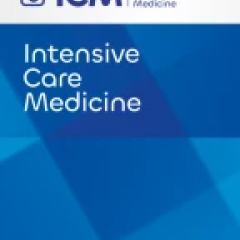Meropenem and piperacillin/tazobactam optimised dosing regimens for critically ill patients receiving renal replacement therapy
Jason A. Roberts, Marta Ulldemolins, Xin Liu, João P. Baptista, Irma Bilgrami, Clement Boidin, Alexander Brinkmann, Pedro Castro, Gordon Choi, Louise Cole, Jan J. De Waele, Renae Deans, Sine Donnellan, Glenn M. Eastwood, Otto R. Frey, Sylvain Goutelle, Rebecca Gresham, Janattul Ain Jamal, Gavin M. Joynt, Salmaan Kanji, Stefan Kluge, Christina König, Vasilios P. Koulouras, Melissa Lassig-Smith, SMARRT Study Collaborators
Optimal dosing of meropenem and piperacillin/tazobactam in critically ill patients receiving renal replacement therapy (RRT) remains uncertain due to variable pharmacokinetics. The SMARRT study was a prospective, multinational pharmacokinetic study enrolled 300 critically ill patients across 22 centres in 12 countries receiving various RRT modalities, resulting in 8322 plasma and effluent fluid samples. Independent population pharmacokinetics models were developed, validated, and applied to perform Monte Carlo simulations to assess the probability of achieving different exposure targets for Enterobacterales and Pseudomonas aeruginosa.
The results of this large study show that meropenem and piperacillin/tazobactam dosing in critically ill patients receiving RRT is dependent on the target concentration chosen and on the main pharmacokinetic determinants in this population, namely RRT intensity, 24h - urine output and RRT duration in the case of intermittent modalities. In most clinical scenarios, extended/continuous infusions facilitate the achievement of effective antibiotic concentrations with lower risk of toxicity. This study has also provided optimised dosing nomograms to individualise meropenem and piperacillin/tazobactam dosing at the bedside.



